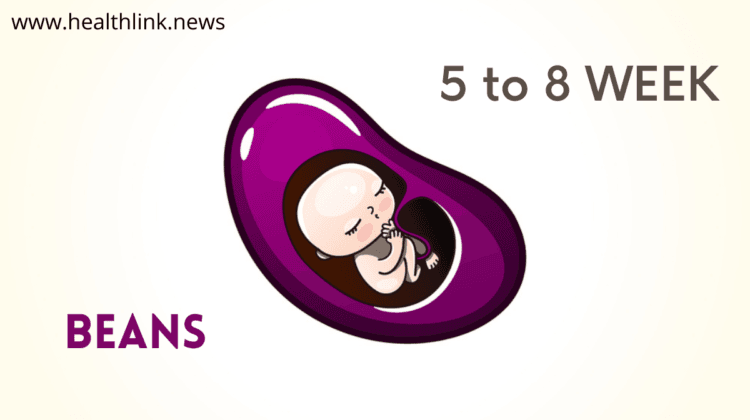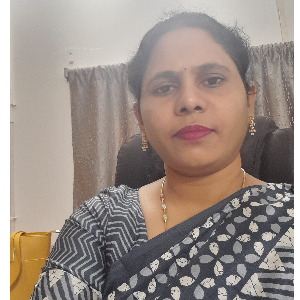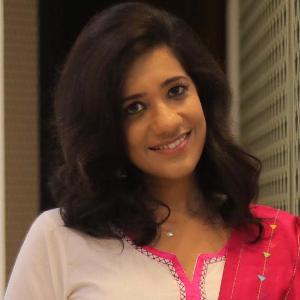Dr. Anuradha Krishnamurthy B
Gynecologist and fertility specialist
 Obstetricians and Gynecologists
Obstetricians and Gynecologists
 Gynecology
Gynecology
Having experiencein gynaecolgy 13yrs. Specialist in ..GYNECOLOGY surgeries like D and C..normal delivery...cesarean sections. Abortion or termination of pregnancy. .hysteroscopy and hysterectomy Laproscopic surgeries...cu.t insertions...tubectomies..IUI...IVF...Expert in ivf...Icsi...egg collection..embryo transfer
House 21..Arthi appartments.Balaram nagar, Adyar, Chennai, Tamil Nadu, India, 600020
- Chennai, Tamil Nadu
- DocIndia Verified
- 400
- AK Sai Sri clinic
Dr. Krithika Muthusamy
Consultant Obstetrician and Gyecologist, Infertility specialist, Laparoscopic surgeon
 Obstetricians and Gynecologists
Obstetricians and Gynecologists
 Gynecology
Gynecology
 Maternity Services
Maternity Services
Dr. Krithika Muthusamy is a highly accomplished obstetrician and fertility specialist with over 10 years experience in providing exceptional care in reproductive health and women’s wellness. Dr. Krithika Muthusamy has a keen interest in laparoscopic surgeries, female and male infertility, and high-risk obstetrics, blending advanced medical techniques with compassionate care. Her commitment to excellence, combined with her expertise and patient-focused approach, makes Dr. Krithika a trusted partner in helping individuals and families achieve their health and fertility goals.
ADYAR PM HOSPITAL, 58, LATTICE BRIDGE ROAD, Chennai, Tamil Nadu, India, 600090
- Chennai, Tamil Nadu
- DocIndia Verified
- 600
- Adyar P.M. Hospital( Tamilnadu. Chennai)
Dr. A Tamilselvi
MBBS, DGO, MRCOG(UK), Fellow of Royal College of Obstetricians and Gynaecologists FRCOG (London)
 Gynecology
Gynecology
Dr Tamilselvi is a senior consultant Urogynaecologist and Obstetrician practicing in Chennai. She completed her under-graduation and post-graduation from Madras Medical College and went over to UK for further training. She completed her MRCOG from Royal College of Obstetricians and Gynaecologists, London during her 10 year stay in UK. She completed her Clinical Fellow-ship In Urogynaecology (2 years) in the UK during this time. On return to India from 2006, has been practicing as Consultant Urogynaecologist - dealing with urinary problems and Prolapse as the super-speciality interest. She has been awarded the Fellowship of Royal College of Obstetricians & Gynaecologists, UK in June 2016.s written several chapters in textbooks, journals and have edited text book in Urogynaecology Her passion is in patient education and creating public awareness of the health issues in women.
3, I Block, 2nd Main Road, Anna Nagar East, Chennai, Tamil Nadu, India
Dr. Sumathy
MBBS, MD - Obstetrics & Gynaecology
 Gynecology
Gynecology
Dr. Sumathy is a Gynecologist in Arumbakkam, Chennai. Dr. Sumathy practices at Women And Health Clinic in Arumbakkam, Chennai. The doctor completed MBBS from Madras Medical College, Chennai in 1993, MD - Obstetrics & Gynaecology from Command Hospital Air Force, Bangalore in 1998 and Dip. ALS ( Germany) from Kiel University, Germany in 2002. The doctor is a member of Tamilnadu Medical Council.
#New No 31, Old No R-72, Maraimalai Adigal Street, M.M.D.A Colony., Chennai, Tamil Nadu, India
Dr. Suba Arumugham Muthuvariavan
MBBS, DGO
 Gynecology
Gynecology
Dr. Suba Arumugham Muthuvariavan is a Gynecologist in Tambaram West, Chennai and has an experience of 31 years in this field. Dr. Suba Arumugham Muthuvariavan practices at N.N. Hospital in Tambaram West, Chennai. She completed MBBS from Thanjavur Medical College in 1990 and DGO from The Tamil Nadu Dr. M.G.R. Medical University (TNMGRMU) in 1996. She is a member of Association of Gynecologic Oncologists of India - AGOI.
#39, Gandhi Road,Tambaram West.Landmark: Opp To K K Eye Hospital & Kishkinda Road., Chennai, Tamil Nadu, India
Dr. Vinitha Padmini Mary
MBBS, MD - Obstetrics & Gynaecology, DGO
 Gynecology
Gynecology
Dr. Vinitha Padmini Mary is a Gynecologist,Infertility Specialist and Obstetrician in Purasawakkam, Chennai and has an experience of 27 years in these fields. Dr. Vinitha Padmini Mary practices at Dr.Vinitha Badmini Mary Clinic in Purasawakkam, Chennai. She completed MBBS from Madras Medical College, Chennai in 1995,MD - Obstetrics & Gynaecology from Madras Medical College, Chennai in 1998 and DGO from Madras Medical College, Chennai in 2005. She is a member of Indian Medical Association (IMA). Some of the services provided by the doctor are: Cervical Cerclage,Essure System,Quad Screen,Cordocentesis and Hysterectomy (Abdominal/Vaginal) etc.
#12, Shanmugarayan Street. Landmark:Apostolic Christian Assemly Opp, Chennai, Tamil Nadu, India
Dr. Kondammal R
MBBS, MD - Obstetrics & Gynaecology
 Gynecology
Gynecology
Dr. Kondammal R is a Gynecologist in Teynampet, Chennai and has an experience of 39 years in this field. Dr. Kondammal R practices at Aswene Soundra Hospital And Research Centre in Teynampet, Chennai and Apollo Womens Hospital in Thousand Lights, Chennai. He completed MBBS from Madurai kamaraj College in 1983 and MD - Obstetrics & Gynaecology from The tamilnadu Dr.MGR Medical university in 1995.
No.16 Shafee Mohammed Road, Thousand Lights, Chennai - 6, Chennai, Tamil Nadu, India
Dr. Satyavathi Nambi
MBBS, DGO
 Gynecology
Gynecology
Dr. Satyavathi Nambi is a Gynecologist in Mylapore, Chennai and has an experience of 52 years in this field. Dr. Satyavathi Nambi practices at Dr Nambi V Poly Clinic in Mylapore, Chennai. She completed MBBS from Stanley Medical College & Hospital , Chennai in 1967 and DGO from Government Kasturbha Gandhi Hospital in 1987. She is a member of Indian Medical Association (IMA). Some of the services provided by the doctor are: Wellness,Vaccination/ Immunization,Normal Vaginal Delivery (NVD),Breast Cancer Screening and Maternal Care/ Checkup etc.
No 5/2, Nagarathinam Colony, Mylapore, Landmark: Near Vivekananda College., Chennai, Tamil Nadu, India
Dr. Prof. Rajeshwari Jeyaraman
MBBS, DGO, MD - Obstetrics & Gynaecology
 Gynecology
Gynecology
Dr.Rajeswari Jayaraman was born in a village near Sivakasi in an agricultural family. She symbolises female literacy and women’s empowerment. Dr.Rajeswari Jayaraman rose to the position of being the first leading Gynecologist of North Chennai. She completed MBBS at Madurai Medical college in 1965 and joined government service. Later on, she went on to become a tutor in anatomy at Madurai Medical College, did DGO in the same college. She joined Kilpauk Medical College as Asst.Professor, completed MD OBG at the Institute of Obstetrics and Gynecology. Prof.Dr.Rajeswari Jayaraman, retired as Deputy Superintendent in the year 2000 from IOG, Madras Medical College. She practices the profession with a passion and devotion as if it were her life, always has a smile for her patients, providing constant encouragement and positive energy to very sick patients, handling each new day as if it has something to teach her. She was awarded the best doctor award by the Indian Medical Association in the year 2002. She has been awarded lifetime achievement award by the Dr.MGR Medical University in 2012. It has been 50 years since she has been serving countless couples in the maternity and fertility field. She is an epitome of sincerity, dedication, and selflessness.
106, Old Number 89, Patel Road, Chennai, Tamil Nadu, India
Dr. Girija Padmini
MD - Obstetrics & Gynaecology, DGO, MBBS
 Gynecology
Gynecology
Dr. Girija Padmini is a Gynecologist in Medavakkam, Chennai and has an experience of 27 years in this field. Dr. Girija Padmini practices at UP Clinic in Medavakkam, Chennai and Margaret Sidney Hospital in Nanganallur, Chennai. She completed MD - Obstetrics & Gynaecology from Madras Medical College, Chennai in 1977,DGO from Madras Medical College, Chennai in 1973 and MBBS from Jawaharlal Institute of Postgraduate Medical Education and Research (JIPMER), Puducherry in 1970. She is a member of Indian Medical Association (IMA). Some of the services provided by the doctor are: Hysterectomy (Abdominal/Vaginal),Amniocentesis,Essure System,Mirena (Hormonal Iud) and Adiana System etc.
Perambakkam Main Road, Medavakkam, Landmark: Adjacent to Saravana Medicals., Chennai, Tamil Nadu, India
Find Best Gynecologists in Chennai
Are you looking for the best gynecologist in Chennai? Whether you need routine women’s health checkups, maternity care, or treatment for gynecological conditions, choosing a trusted gynecologist is crucial. Chennai is home to some of the most reputed and experienced gynecologists specializing in a wide range of women’s health issues, ensuring personalized care and the best treatment options. Here DocIndia provides a comprehensive list and complete details of top gynecologists in Chennai.
Book an Appointment with the Best Gynecologist in Chennai Today
Choosing the right gynecologist plays a crucial role in ensuring long-term well-being. Explore our list of experienced and highly qualified gynecologists in Chennai to find the perfect specialist for your needs. Login to DocIndia and schedule your appointment today.
Find Also: Top 10 Pediatricians in Chennai | Top 10 General Physicians in Chennai | Top 10 Endocrinologist in Chennai | Top 10 Ayurvedic Doctors in Chennai | Top 10 Homeopathic Doctors in Chennai | Top 10 Pulmonologists in Chennai | Top 10 Orthopedic Surgeons in Chennai | Top 10 Eye Surgeons in Chennai
Frequently Asked Questions
Other Specilities
News Articles

Your Ultimate Pregnancy Guide 5 to 8 Wee ...Read More

Your Ultimate Guide for 31st to 34th Wee ...Read More

Your Ultimate Guide For 26th to 30th Wee ...Read More

Your Guide to Deal with Labor Pain Durin ...Read More

Yoga Poses For Third Trimester Pregnancy ...Read More



